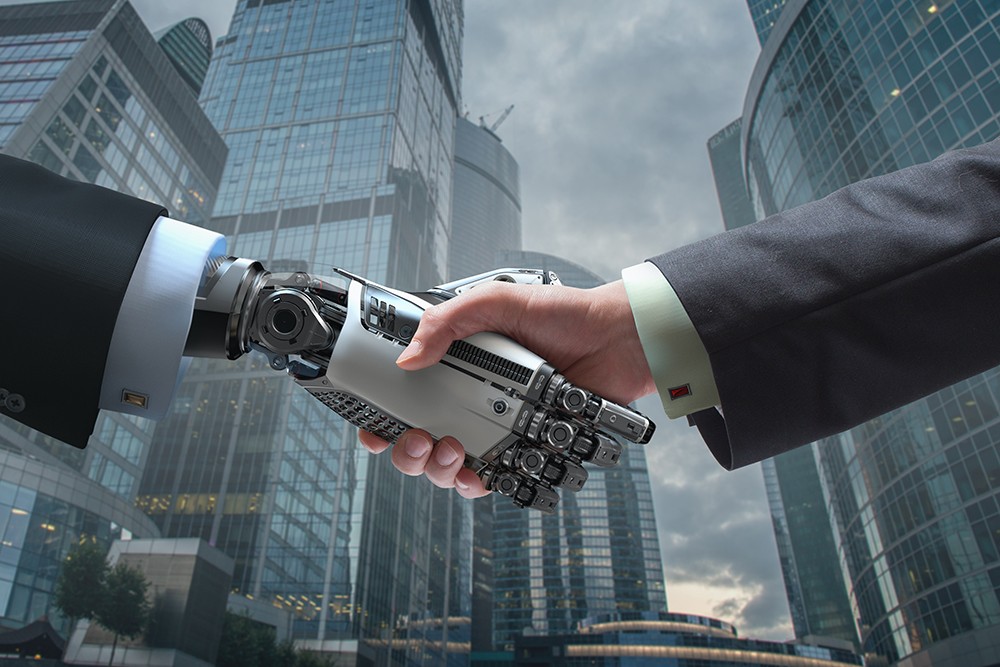“I believe today’s world is yesterday’s science fiction,” said Ross Simmonds, founder of Foundation Marketing, at MPI’s 2019 World Education Congress (WEC) in Toronto.
“We are becoming one with our technology,” he added.
In his session on artificial intelligence (AI), Simmonds laid out AI’s future and some tools meeting professionals can start using to plan better events.
How AI Has Evolved and Why Planners Should Care
“The dismissal of innovation could be your own disruption,” Simmonds said, cautioning the audience to not ignore artificial intelligence.
Citing a few examples, Simmonds illustrated how AI has evolved.
[Stamats Insights Podcast: What Marketers Need to Know About AI]
He walked through the evolution of farming tractors—from being operated by horses and people to some of today’s self-driving tractors, which could eliminate the need for the farmer to be in the field completely.
AI has the potential to change how people work, which should be of concern for all workers. It’s already had a huge impact on the manufacturing industry, replacing many once-human jobs.
For meeting planners, Simmonds suggested embracing some of these advancements in AI.
With an increasingly strong focus on “memorable experiences” at events, planners that unload some of their routine duties to AI tools like scheduling, for example, can redirect their energy to more creative tasks.
How Planners Can Use AI: Chatbots, Scheduling Assistants, Etc.
Though AI in the workplace is still new to most people, Simmonds believes it’s the future. Some tools are already available that planners can experiment with. These include:
- Chatbots: Increasingly popular on websites, chatbots can immediately assist planners with fielding questions about their event online.
- Scheduling assistants: Various tools can schedule appointments over email or phone, which could be helpful when planning events. Simmonds showed the crowd an example of Google AI calling to schedule an appointment—and it sounded real, with a human-sounding voice and “ums” sprinkled throughout the conversation.
- Dialpad Talk: This cloud-based, AI-powered business phone system uses voice intelligence to analyze conversations in real time. It can notify you if a conversation is going well or poorly and provide other insights.
For example, Simmons said it was used to analyze 10,000 conversations from conferences, and the tool found men were consistently speaking over women.
[Related: The End of Interpreters?—This A.I. Language App Translates for You]
“We’re still very much in the early stages—but the people who are using AI are the people who will reap the benefits,” Simmonds said. “The time to sign up for some of these tools is now.”
The Future of AI in the Workplace
“The work that is non-routine will sustain itself in the long term,” Simmonds explained. Routine tasks, however, will continue to be easier for AI to perform, and workers should accept that.
“Challenge yourself to walk away from the routine tasks and really focus on the non-routine,” Simmons said.
The Future of Jobs Report from the World Economic Forum predicts that top skills in 2020 will include, among others:
- Complex problem solving
- Critical thinking
- Creativity
Simmonds recommended leveraging AI to help with mundane tasks so you can focus on developing these skills instead.
“The future is going to look like this,” he said, revealing a picture of Ironman. “Well, not exactly like this, but we will be working with AI in a similar way.”
Simmonds explained that embracing new technologyand using it to enhance your work, rather than fearing it, is how people should view AI.
Check out all of our MPI WEC 2019 event coverage in this handy article.







